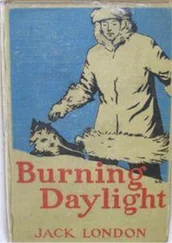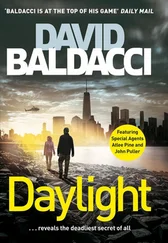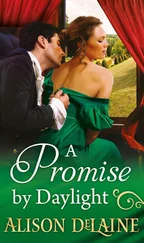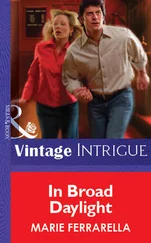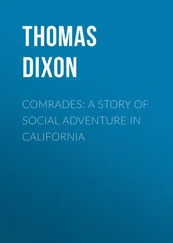Thomas Stribling - A Daylight Adventure
Здесь есть возможность читать онлайн «Thomas Stribling - A Daylight Adventure» весь текст электронной книги совершенно бесплатно (целиком полную версию без сокращений). В некоторых случаях можно слушать аудио, скачать через торрент в формате fb2 и присутствует краткое содержание. Жанр: Классическая проза, на английском языке. Описание произведения, (предисловие) а так же отзывы посетителей доступны на портале библиотеки ЛибКат.
- Название:A Daylight Adventure
- Автор:
- Жанр:
- Год:неизвестен
- ISBN:нет данных
- Рейтинг книги:4 / 5. Голосов: 1
-
Избранное:Добавить в избранное
- Отзывы:
-
Ваша оценка:
- 80
- 1
- 2
- 3
- 4
- 5
A Daylight Adventure: краткое содержание, описание и аннотация
Предлагаем к чтению аннотацию, описание, краткое содержание или предисловие (зависит от того, что написал сам автор книги «A Daylight Adventure»). Если вы не нашли необходимую информацию о книге — напишите в комментариях, мы постараемся отыскать её.
A Daylight Adventure — читать онлайн бесплатно полную книгу (весь текст) целиком
Ниже представлен текст книги, разбитый по страницам. Система сохранения места последней прочитанной страницы, позволяет с удобством читать онлайн бесплатно книгу «A Daylight Adventure», без необходимости каждый раз заново искать на чём Вы остановились. Поставьте закладку, и сможете в любой момент перейти на страницу, на которой закончили чтение.
Интервал:
Закладка:
“I regret to say, ladies and gentlemen, that my appearance here is pure accident. Why? Because I have come too late. If a supernal power had sent me here to save an innocent woman — and she is an innocent woman — if a supernal power had sent me, it would certainly have sent me in time. But I am not in time. The trial is over. All the proof is in. We cannot possibly ask a new trial on the ground of a reinterpretation of old proof, which is what I am giving you. That is no ground for a new trial. So this innocent woman who is on her way to the penitentiary must go on and serve out her unjust term. My appearance here today, therefore, can be of no service to anyone and can be attributed to nothing but pure chance.”
At this pitiful negation an uproar arose in the square. Men surged toward the sheriff, yelling for him to turn the woman free or they would do it for him. Cooler heads held back the insurgents and voices shouted out:
“Dr. Poggioli, who did do the murder? You know ever’thing — who done it!”
The criminologist wagged a negative hand. “I have no idea.”
“The devil!” cried a thick-set fellow. “Go ahead an’ reason out who killed Jim Cancy — jest like you reasoned out his wife was innocent!”
“I can’t do that. It’s impossible. I haven’t studied the evidence of the murder, merely the evidence that proves non-murder — a completely different thing.”
“Go ahead! Go ahead!” yelled half a dozen voices. “The Lord has he’ped you so fur — He’ll stan by you!”
It was amusing, in a grim fashion, for the crowd to twist the very materialistic point Poggioli was making into a logical basis for a spiritualistic interpretation. However, I do not think Poggioli was amused. He held up his hands.
“Friends, how could I know anything about this when I stopped over for lunch in this village only one hour ago?”
A dried-up old farmer, whose face had about the color and texture of one of his own corn shucks, called out, “Somebody shot Jim, didn’t they Dr. Poggioli?”
“Oh, yes, somebody shot him.”
“Well, have you got any idyah of the kind of man who shot Jim Cancy?”
“Oh, certainly. I have a fairly clear idea of the kind of man who murdered Cancy.”
“I allowed you had, Brother, I allowed you had,” nodded the old fellow with satisfaction. “The Lord put it into my heart to ast you exactly that question.” The old fellow turned to the officer, “Shurrf Matheny, has he got time to tell what kind of a fellow murdered Jim before you start with Sister Cordy to the pen?”
The officer held up his hand. “I am extendin’ Sister Cordy’s startin’ time two more hours — so we can find out who murdered her husban’ instid of her.”
“O.K.,” called a woman’s voice, “go ahead and tell us the kind of skunk that done that!”
“Well, Madam, I would say it was a man who shot Jim Cancy.”
“Oh, yes, we all know that,” shouted several listeners. “Women don’t shoot nobody, they pisen ‘em… as a rule.” “Go on, tell us somp’m else.”
“Well, let me see,” pondered Poggioli aloud. “Let us begin back with the forgery itself. Mrs. Cancy did this. She admits it. But she did not originate the idea, because that is a highly criminal idea and she does not have a highly criminal psychology. She has, in fact, a very religious and dutiful psychology. I also know that if she had been bright enough to think of tracing the will from her old love letters, she would have realized how dangerous they were to keep in her unlocked trunk and would have destroyed them immediately. Therefore, I know somebody suggested to her how she could forge the will.”
More angry shouts interrupted here, as if the crowd were reaching for the real criminal. Some voices tried to hush the others so the psychologist could proceed. Eventually Poggioli went on.
“All right, Mrs. Cancy did not originate the idea of forgery. Then she was used as a tool. But she is not a hard, resolute woman. Just look at her there in the sheriff’s car and you can see that. She is a soft, yielding woman and would not carry any plan through to its bitter end. But in her trial she did carry a plan through to its bitter end, and this end, odd to say, was to put a new roof on the Leatherwood church. Ladies and gentlemen, a new roof on Leatherwood church was the basic motive for Cancy’s murder. It is fantastic, but it is the truth. Mrs. Cancy refused to hire a lawyer when she came to trial. Why? To save the money to put a roof on Leatherwood church. So the person who persuaded her to commit the forgery must also have persuaded her to withhold the money for the church roof, and that God would come down and set her free from the charge of murder.”
At this the enthusiasm of the crowd knew no bounds. They flung up their hats, they yelled, they cried out that now the Lord had come to help Sister Cordy just like He had promised. The sheriff arose in his car and shouted that he extended Sister Cordy’s leaving time for the rest of the day. He yelled that they were hot on the trail of the man who done it and he would remain in town to make the arrest.
I could see Poggioli was unnerved. It would take a cleverer psychologist than I am to explain why he should be. Of course, his demonstration was going awry. He was not getting where he had intended to go. He lifted up his hands and begged the crowd.
“My friends, please remember this. I do not know the man. I have no idea who he is. I can only give you his type.”
“All right,” shouted many voices, “go on and give us his type, so Sheriff Matheny can arrest him!”
The criminologist collected himself. “As to his type: I ate lunch in the Monarch cafe a little while ago and was reading an account of Mrs. Cancy’s trial in your county paper. As I read, a gentleman beside me said that he had been watching strangers read the story of that trial for months, as it lay there on the lunch counter. It is possible such a man might have some connection with the murder; or he may have been morbidly curious about crime in general—”
Shouts of satisfaction here—”Go ahead, now you’re gittin’ somewhere!”
Poggioli stopped them. “Wait! Wait! I by no means incriminate this gentleman. I am trying to show you the various hypotheses which a criminologist must apply to every clue or piece of evidence.”
“All right, Doctor, if he didn’t kill Jim Cancy, who did?”
Poggioli mopped his face. “That I do not know, nor do I know anything whatever about the man in the café. I am simply trying to give you a possible psychological description of the murderer. Now, this man at my table also reprimanded my friend here for what he considered to be an infraction of a religious formality. In fact, he became quite angry about it. That would link up with the fact that Jim Cancy was reported to be a free-thinker. A free-thinker would have irritated such a man very deeply. If Cancy had jibed at this man’s faith, the fellow would have felt that any punishment he could inflict on the mocker would be justified, even unto death. Also, he could have persuaded himself that any money he might receive from Cancy’s death should be devoted to the welfare of the church — as for example, to put a new roof on the Leatherwood church. Following these plans, he could have easily influenced Mrs. Cancy to forge Cancy’s will, with the understanding that the money would go to the church. Then he could have waylaid and shot Cancy, and made the will collectible. This would have accomplished two things; gratify his private revenge and make a contribution to the church. The murderer could be of that type or he could be of a completely different type which I shall now try to analyze…”
How many more types Poggioli would have described nobody knew, for at this juncture the sheriff discovered that his prisoner had fainted. This created a tremendous commotion. For a hill woman to faint was almost as unparalleled as for a horse to faint. Sheriff Matheny arose in his car and hallooed that he would carry no sick woman to the Nashville pen, and that Mrs. Cancy should remain here with her baby until she was completely recovered, even if it took a week. After making this announcement, the officer climbed out of his car and disappeared in the throng.
Читать дальшеИнтервал:
Закладка:
Похожие книги на «A Daylight Adventure»
Представляем Вашему вниманию похожие книги на «A Daylight Adventure» списком для выбора. Мы отобрали схожую по названию и смыслу литературу в надежде предоставить читателям больше вариантов отыскать новые, интересные, ещё непрочитанные произведения.
Обсуждение, отзывы о книге «A Daylight Adventure» и просто собственные мнения читателей. Оставьте ваши комментарии, напишите, что Вы думаете о произведении, его смысле или главных героях. Укажите что конкретно понравилось, а что нет, и почему Вы так считаете.

